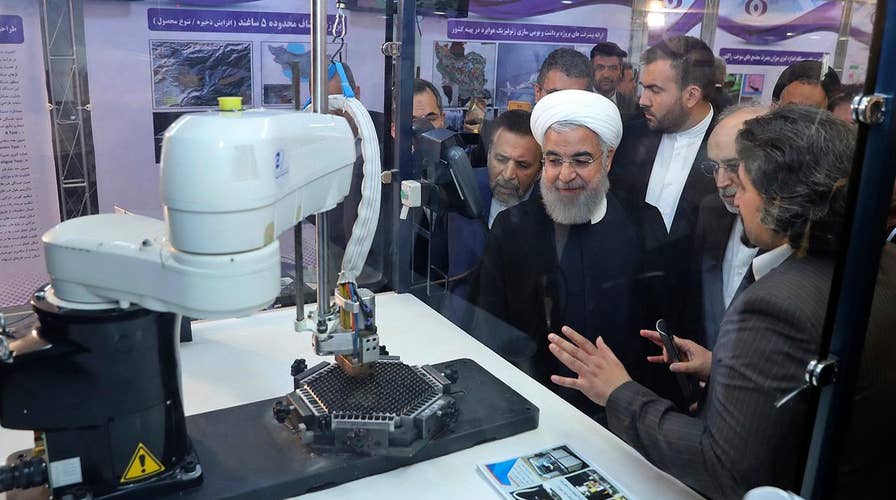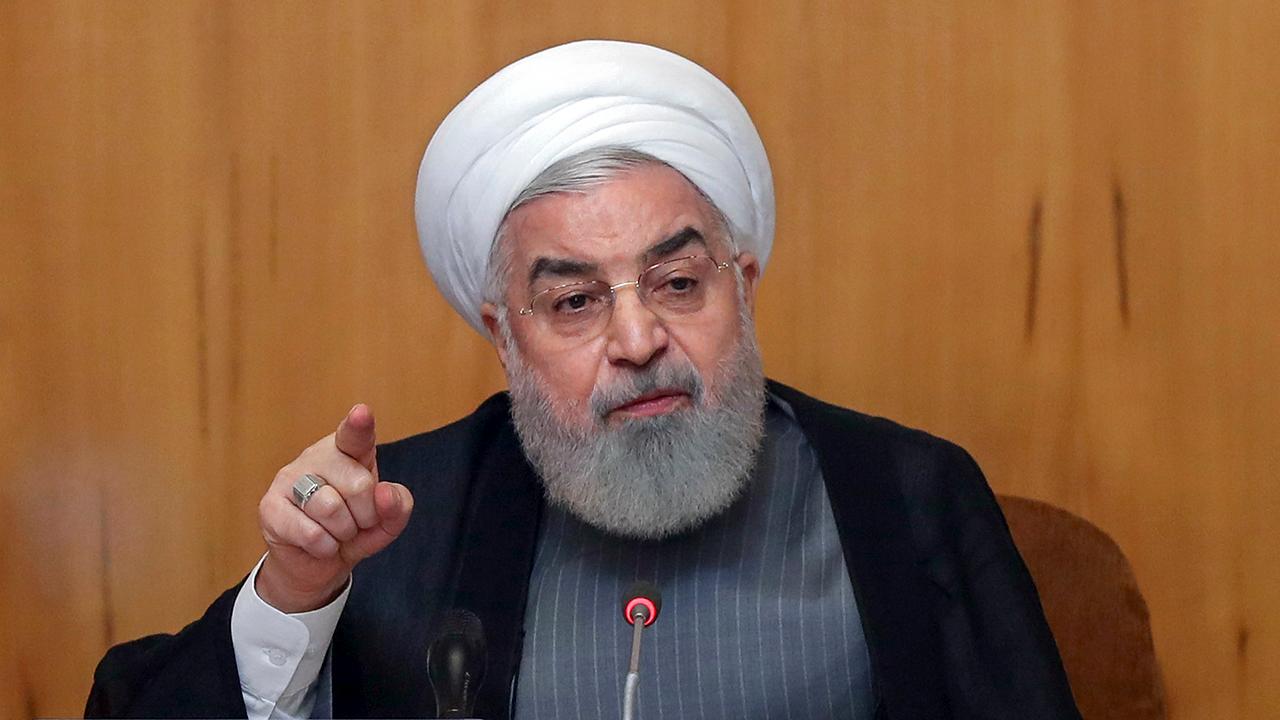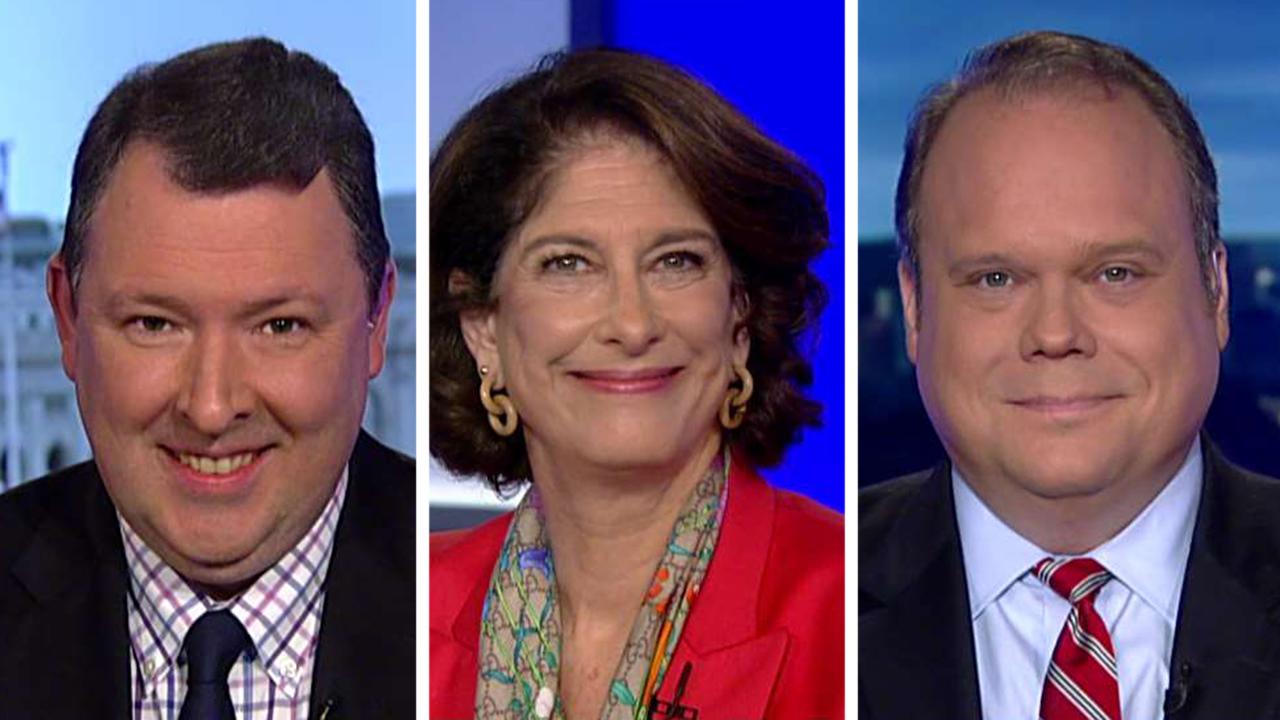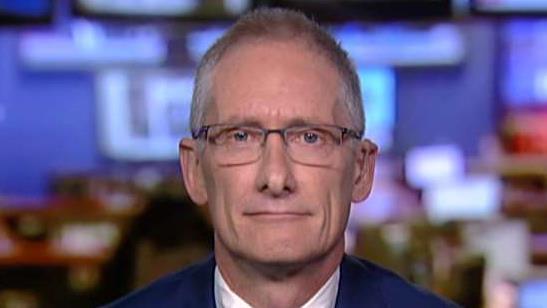Iran plans to 'take the next step' to enrich uranium to weapons-grade level
EU nations urge Iran not to further undermine nuclear deal; reaction from Foundation for Defense of Democracies president of research Jonathan Schanzer.
France dispatched a top diplomat to Iran Tuesday while joining Germany and Britain in calling for the Tehran regime to scale back its recent uranium enrichment activities "without delay."
Emmanuel Bonne, a diplomatic adviser to French President Emmanuel Macron, was expected to meet Wednesday with Iran's senior security official, Ali Shamkhani, according to the semi-official Tasnim news agency. Bonne hopes to try to "obtain gestures" from Iran to show they're serious about staying in the 2015 nuclear deal, a French official told The Associated Press.
The European nations, who remain part of the accord along with Russia and China, said they planned to organize a meeting among the signatories over “deep concern that Iran is not meeting several of its commitments.” They added that the meeting needed to be “convened urgently,” but did not say when it would take place.
“Iran has stated that it wants to remain within the JCPOA [Joint Comprehensive Plan of Action, the formal term for the 2015 agreement]," the three nations said. "It must act accordingly by reversing these activities and returning to full JCPOA compliance without delay."
PUTIN SAYS US MILITARY ACTION AGAINST IRAN WOULD BE A 'CATASTROPHE FOR THE REGION'
Europe has been under pressure from the U.S. to withdraw from the accord as President Trump did last year, and is also being urged by Iran to offset the crippling effects of American economic sanctions. The tensions have thus strained Europe’s soft-power approach to its limits at a time of increasing tensions in the Middle East.
“For the Europeans, it’s going to be difficult not to lose credibility in their position with Iran and also with Washington, by not being too soft, but at the same time acknowledging that there is some truth to what Iran is saying," Adnan Tabatabai, a political scientist with the Bonn-based CARPO think tank on Middle Eastern affairs, told the Associated Press.
Researcher Sanam Vakil of the London-based Chatham House think tank said that Europe will be forced to tread lightly with Macron leading the three European countries, known as the E3, trying not to escalate the situation while seeking a resolution between Tehran and Washington.
“What the E3 can do is kick-start diplomacy and diplomatic conversations,” she said. “They can potentially convince Iran to freeze its breach and prevent any further breaches while shepherding a process back and forth between Washington and Iran – worst case scenario is that nothing happens, but at least they’ve bought themselves time.”
So far, neither Iran's announcement last week that it had exceeded the amount of low-enriched uranium allowed under the deal, nor Monday's revelation it had begun enriching uranium past the 3.67 percent purity allowed, to 4.5 percent, are seen as such gross violations that they are likely to prompt Europe to invoke the deal's dispute resolution mechanism. Both of Iran's actions have been verified by the U.N.'s nuclear watchdog, the International Atomic Energy Agency.
Experts warn that higher enrichment and a growing stockpile narrow the one-year window Iran would need to have the necessary material for an atomic weapon, something that Tehran denies it wants but the deal prevented.
This is the second trip to Tehran by Bonne in as many months. He was in the Iranian capital in mid-June for one day.
"The idea [of Bonne's visit] is to privilege dialogue [over] escalation that can become explosive," and "not reach a situation of war," the French official told AP.
“This is very much an E3 process, but Macron is leading it because obviously, the U.K. is in a period of leadership transition and Germany is taking a slightly less-visible role, but I think there is great unity here,” Vakil said.
CLICK HERE TO GET THE FOX NEWS APP
Britain, France and Germany urged all signatories in the accord to act responsibly toward deescalating ongoing tensions regarding Iran’s nuclear activities while proposing dialogue. They did not mention any country by name other than Iran itself.
The U.S. has deployed thousands of troops, an aircraft carrier, nuclear-capable B-52 bombers and advanced fighter jets to the Middle East amid fears of increasing tensions that followed the downing of an American drone by surface-to-air missiles and a disputed attack on a pair of oil tankers in the Gulf of Oman – these were a series of events most recent to Iranian provocation in the region.
Fox News' Morgan Cheung and the Associated Press contributed to this report.












































